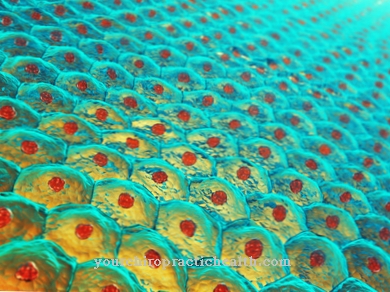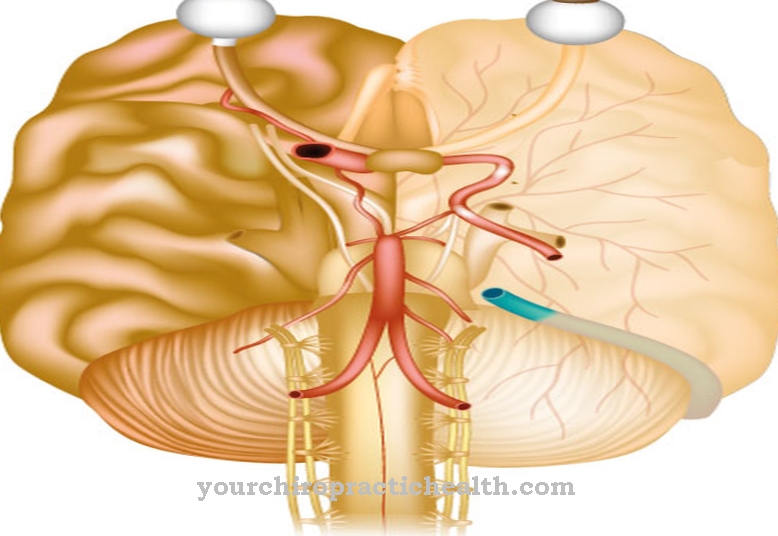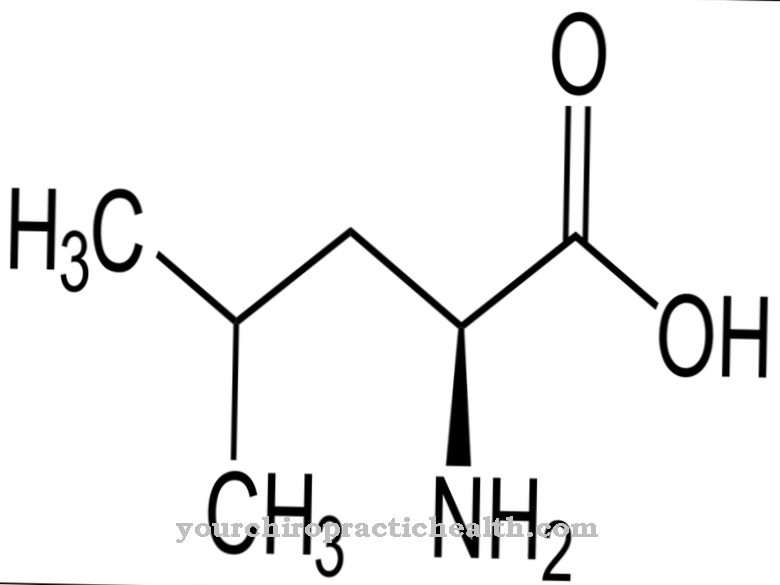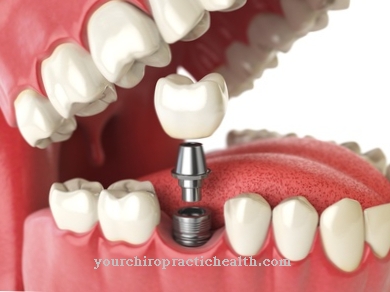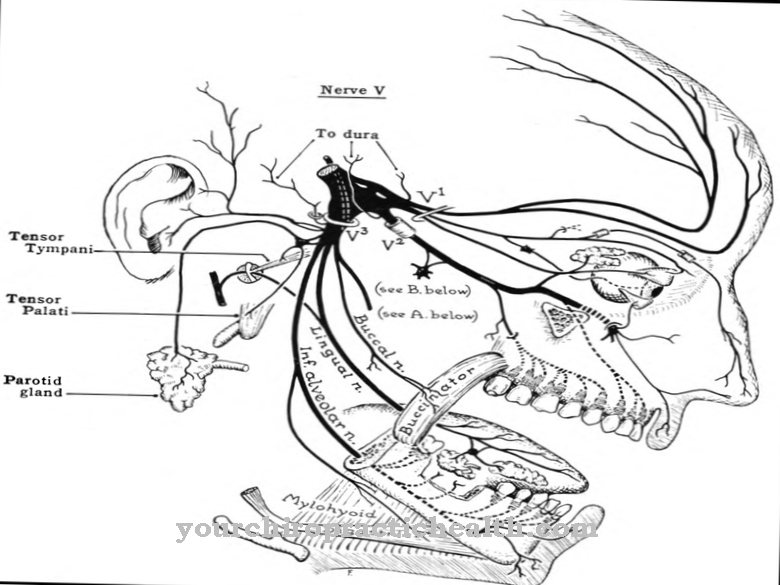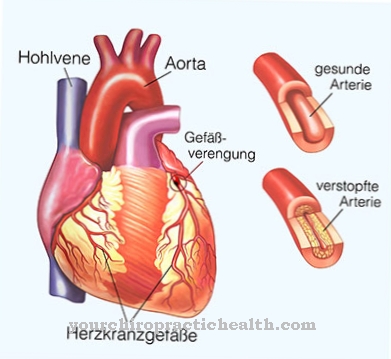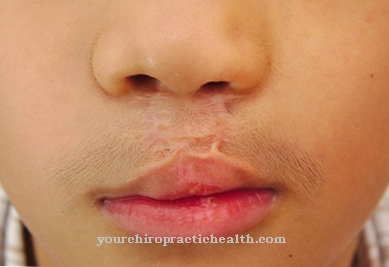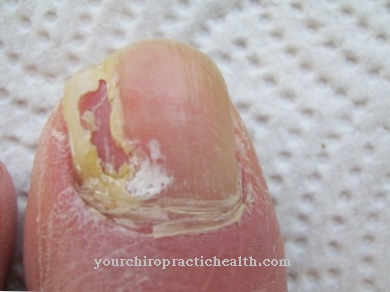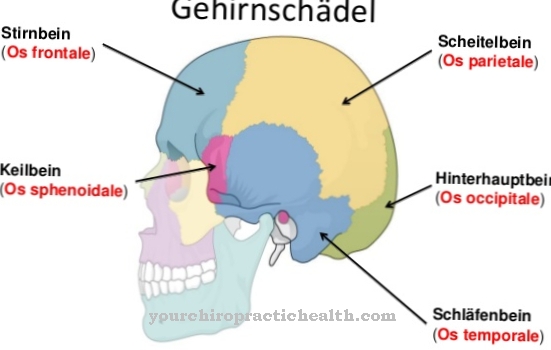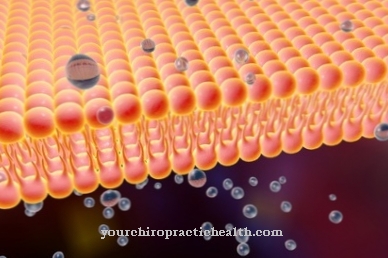Under the Kallmann syndrome is understood to be a congenital disease. This leads to an underfunction of the gonads and a loss of the sense of smell.
What is Kallmann Syndrome?

© Alila Medical Media - stock.adobe.com
The Kallmann syndrome (KS) is also called olfactory syndrome known. Those affected suffer from this disease from a reduced or completely absent sense of smell. Furthermore, there is an underfunction of the gonads (hypogonadism) such as the male testicles or female ovaries. Kallmann syndrome is congenital and is one of the rare diseases.
It affects men much more often than women. The frequency in men is 1: 10,000, while it is 1: 50,000 in women. The disease was named after the German psychiatrist Franz Josef Kallmann (1897-1965). The Kallmann syndrome was first mentioned in 1856 by the Spanish doctor Aureliano Maestre de San Juan. This is why the disease also has the name in Spanish-speaking regions Sindrome de Maestre-Kallman-Morsier.
causes
The Kallmann syndrome is triggered by genetic defects, more precisely by mutations that appear in a protein. This protein is extremely important for the development of the olfactory bulb (Bulbus olfactorius) and of various core areas of the hypothalamus. Cells that produce gonadoliberin (GnRH) reach the forebrain from the nasal placode during embryonic development. The exact route is still unclear, however.
The cell bodies are located in the hypothalamus in the supraoptic region, while the runners extend into the median eminentia. From there they release releasing hormones towards the portal circulation. The hormones ensure the release of the gonadotropins LH and FSH. In this way, the female menstrual cycle as well as sperm and testosterone production in men are controlled. In the case of Kallmann syndrome, however, aplasia (non-development) of the olfactory bulb occurs for genetic reasons.
So far, it has been possible to describe two mutations that may be responsible for the development of Kallmann syndrome. These are the KAL mutation on the X chromosome and the FGFR1 gene on chromosome 8. These mutations cause a developmental disorder of the central nervous system (CNS). The immigration of nerve cells to the place that is physiologically determined for them is disturbed.
The disorder manifests itself through abnormalities in the hypothalamus. Due to the impairment of the hypothalamus, the hormone GnRH can only be released insufficiently, which has a negative effect on the release of FSH and LH as gonadotropins. The wrong development of the olfactory bulb in turn results in the loss of the sense of smell.
Symptoms, ailments & signs
The symptoms that occur with Kallmann syndrome can be very different. The main symptom is an impaired sense of smell, which is known as hyposmia, or the complete loss of the sense of smell, which is known as anosmia. The second critical symptom is the delay or complete absence of puberty. The affected persons do not develop any secondary sexual characteristics. For example, males do not break their voices. Beard growth and body hair are also affected.
In the female sex again there is no menstruation. In some cases, a craniofascial malformation also occurs. This shows disproportionalities in the face and head. If the Kallmann syndrome is X-linked, which occurs in about a third of all patients, a kidney is often missing. If, on the other hand, there is a mutation in the FGFR1 gene, a malformation of the cleft lip and palate is also possible.
Diagnosis & course of disease
Diagnosing Kallmann syndrome is often difficult. In women in particular, the symptoms are often inconspicuous, which means that the doctor sometimes overlooks them during an examination. In addition, problems with the development of odors are usually not even noticed by the patients because they do not know any other smells. As a result, the Kallmann syndrome is only diagnosed in some patients at an advanced age.
An important diagnostic option is checking the testosterone or estrogen level in the body. The gonadotropin level manifests itself through a prepubertal pattern. GnRH stimulation leads to an increased release of gonadotropins. The disturbance of the sense of smell can be determined by an odor test. Anomalies in the central nervous system can be detected using imaging methods such as magnetic resonance imaging (MRI).
Both male adolescents and adult men who suffer from Kallmann's syndrome will require replacement therapy with testosterone for their entire life. If treated appropriately, puberty and sex life can be normalized.
Complications
In most cases, the Kallmann syndrome leads to a restricted sense of smell. This can also be completely lost in the further course of the disease. As a result, the patient experiences significant difficulties in everyday life and the quality of life is significantly reduced and restricted by the Kallmann syndrome. Furthermore, in addition to the limitations of the sense of smell, there is usually a complete absence of puberty.
This absence has a very negative effect on the child's development. For example, there is no menstruation or sexual development. It is not uncommon for patients to suffer from malformations in the head region. A kidney may also be missing. A cleft palate can also affect the patient's aesthetics, resulting in significant inferiority complexes or a greatly reduced self-esteem.
However, the symptoms of Kallmann syndrome do not have to occur immediately after birth. In many cases, patients do not experience the symptoms of this disease until adulthood. Treatment of Kallmann syndrome can be carried out with the help of drugs and hormones. There are no complications. However, psychological treatment is usually also necessary to avoid complications in adulthood.
When should you go to the doctor?
If symptoms such as an impaired sense of smell or a lack of puberty are noticed, the underlying cause may be Kallmann syndrome. A doctor should be consulted if symptoms persist longer than usual or if they may even persist. If there are any further complaints, the family doctor must be called in immediately. Girls and women who do not menstruate should speak to the gynecologist.
Men who suffer from malformations in the genital area are best advised to consult a urologist. The Kallmann syndrome can express itself through very different symptoms, which is why a doctor should be consulted at the first signs of illness. People who suffer from a hereditary disease should inform their doctor. It is best to go to the pediatrician with children. In many cases, Kallmann syndrome is diagnosed and treated immediately after birth. Suitable contacts are speech therapists, orthopedists, gynecologists, urologists and specialists in hereditary diseases. If there are serious complications, the child should be taken to a clinic immediately.
Therapy & Treatment
The therapy of Kallmann syndrome consists primarily of the supply of hormones such as testosterone or progesterone / estrogen. While the man is receiving testosterone, the woman is being given estrogen or progesterone. The supply of the hormones can take place through the administration of gels, injections or special patches. Substitution treatment enables normal puberty to develop, allowing patients to lead relatively normal lives.
Under certain circumstances, children can even be conceived. If the patient has a desire to have children, replacement therapy with gonadotropins takes place. For most of those affected, this can lead to the formation of sperm or oogenesis (formation of egg cells). However, especially in men, there is a reduction in fertility.
It is also important to counteract bone loss (osteoporosis), because the Kallmann syndrome also leads to a reduction in bone density. The lack of smell, however, cannot be treated. Psychotherapy and human genetic counseling are also considered important therapy factors. The presence of anemia (anemia), which often occurs with this disease, must also be treated.
You can find your medication here
➔ Medicines for colds and nasal congestionOutlook & forecast
If hormone therapy is initiated in a timely manner, puberty will develop normally. Men are guaranteed a normal sex life in adulthood through the lifelong administration of testosterone. After adequate and timely hormone administration of estrogen and progesterone, there are no sexual functional restrictions even in women. The hormones are usually injected through gels or plasters. Through the hormone treatment in puberty, feminization or masculinization is achieved in all patients.
These hormone therapies can also have psychological consequences, such as listlessness, mood swings or a change in libido. Therefore, in addition to hormone therapy, psychological support for the patient should also be considered.
If there is a desire to have children, the administration of gonadotropin or gonadoliberin can stimulate the maturation of the sperm cells or egg cells. On average, it can take anywhere from 18 to 24 months for seed production to be fully restored. Normal fertility is achieved in around 80% of these cases.
An empirical study reported on five patients with Kallmann syndrome who, after several years of hormone replacement therapy, spontaneously restored their gonad function.
prevention
Since the Kallmann syndrome is congenital and is caused by a genetic defect, it cannot be effectively prevented.
Aftercare
Since Kallmann syndrome is a hereditary and therefore a congenital disease, it cannot be completely cured or treated. A doctor should be contacted at the first symptoms and signs of the syndrome so that there are no further complications or further worsening of the symptoms. An early detection of the symptoms can lead to a positive course of the disease, whereby the measures and the possibilities of follow-up care are in most cases severely limited.
Kallmann syndrome is usually treated by taking various medications. Those affected should ensure the correct dosage and regular intake of the medication in order to permanently alleviate the symptoms. Parents must ensure that they are taken regularly, especially with children.
Not all symptoms of Kallmann syndrome can be completely alleviated, so that many patients depend on the help and support of their own family in their everyday lives. In most cases this disease does not reduce the life expectancy of those affected. Further follow-up measures are not available to patients with Kallmann syndrome.
You can do that yourself
People who suffer from Kallmann syndrome usually have various complaints and therefore require extensive medical treatment. Since the individual symptoms often persist for a lifetime and this can put a considerable strain on the psychological state of those affected, therapeutic advice is usually indicated.
In conversation with a therapist, the person concerned learns to deal with the disease and the problems it brings with it. In most cases, psychological counseling can also be used to establish contact with other affected persons. This makes it easier to deal with Kallmann syndrome and offers the sick person the opportunity to learn new strategies and tips for coping with everyday problems.
In addition to these therapeutic measures, those affected can also support the treatment of the symptoms. The doctor will first recommend that the patient change their eating habits. Hormone treatment can be supported by a balanced diet. Regular exercise, adequate sleep, and avoidance of stress all contribute to this treatment. In addition, medical supervision is always indicated, as this is the only way to avoid complications. If unusual symptoms occur or serious mental problems occur, a visit to the responsible doctor is indicated.

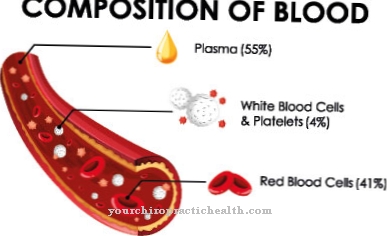
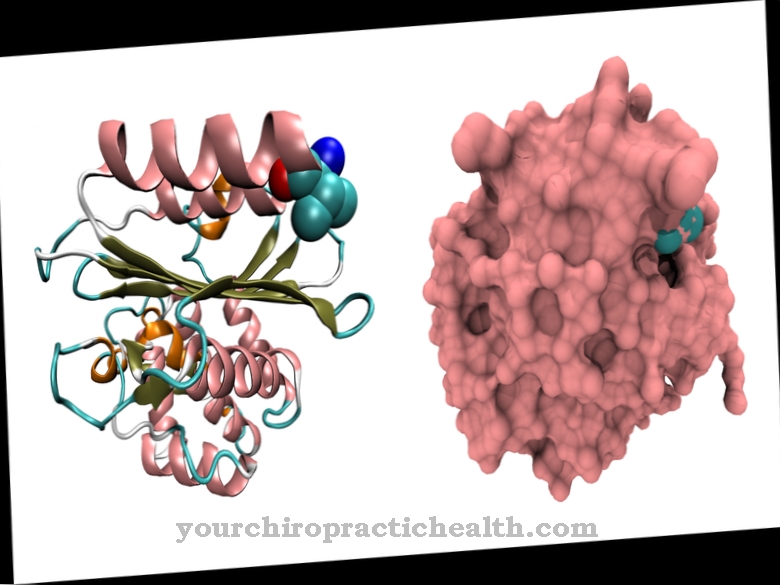
.jpg)

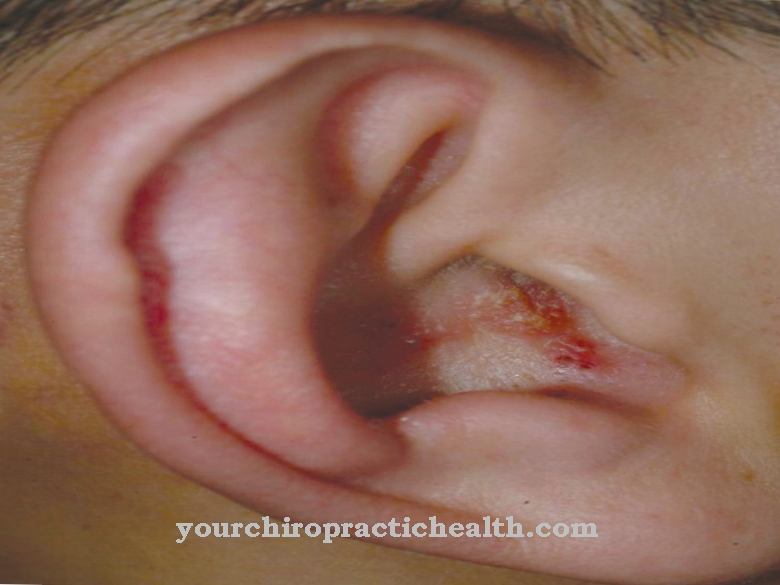


.jpg)
